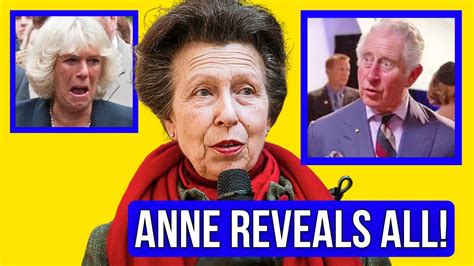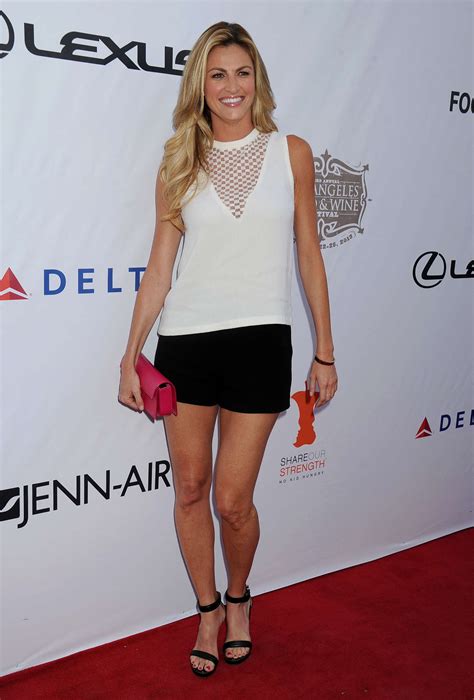
Queen Elizabeth II reportedly harbored initial reservations about Kate Middleton’s career ambitions, or lack thereof, before she married Prince William, according to royal expert Katie Nicholl. The late monarch was allegedly concerned that Kate did not have a clearly defined career path prior to her royal engagement, a sentiment reportedly shared with close friends.
Royal author Katie Nicholl, in her book “The New Royals,” claims Queen Elizabeth II had early misgivings about Kate Middleton before she became the Princess of Wales. The concern stemmed from what the Queen perceived as a lack of a solid career trajectory for Kate before her marriage to Prince William. This alleged “problem” was not about Kate’s personality or suitability for William, but rather centered on the perception that she lacked professional ambition.
According to Nicholl, the Queen, known for her unwavering dedication to duty and a strong work ethic, reportedly expressed these concerns to close confidantes. The Queen valued individuals who contributed actively to society through their professional endeavors. In Kate’s case, before her marriage, she had worked in various part-time roles, primarily within the fashion industry, after graduating from the University of St Andrews. These roles included working as an accessories buyer for the clothing chain Jigsaw and contributing to her parents’ party planning business, Party Pieces.
The Queen’s generation placed considerable importance on having a defined career, particularly within the royal family. Her own life was a testament to a lifelong commitment to service and responsibility. The royal family, for centuries, has been associated with structured roles and responsibilities, and the Queen expected members of the family to dedicate themselves to public service, often through established careers or patronages. Kate’s pre-marital work life, while respectable, didn’t fit the mold of traditional royal expectations, sparking the Queen’s initial reservations.
The concerns, however, appear to have been assuaged over time. Kate has since proven herself to be a dedicated and impactful member of the royal family. She has embraced her royal duties with diligence, undertaking numerous charitable initiatives and patronages focused on children’s mental health, early childhood development, and supporting families.
Nicholl suggests that Kate’s subsequent dedication to her royal role and her unwavering support of Prince William eventually won over the Queen. Kate Middleton has evolved into a prominent figure within the royal family, admired for her grace, poise, and commitment to her royal duties. She has become a popular and respected figure both in the United Kingdom and internationally, demonstrating a strong sense of duty and a genuine connection with the public.
The initial concerns highlight the weight of expectations placed upon individuals marrying into the royal family. Their lives are scrutinized, and their actions are constantly under public observation. Kate Middleton’s journey from a commoner to the Princess of Wales is a testament to her ability to adapt and thrive under immense pressure, ultimately earning the respect and admiration of the Queen and the public alike.
The narrative surrounding Queen Elizabeth’s initial reservations about Kate Middleton provides insight into the dynamics of the royal family and the importance placed on duty, tradition, and public service. While the Queen may have had concerns early on, Kate’s subsequent dedication to her role has solidified her position as a valued and integral member of the royal family, solidifying her place in the modern monarchy.
In-Depth Analysis of Queen Elizabeth’s Concerns
The alleged concerns of Queen Elizabeth II regarding Kate Middleton’s career path before her marriage delve into deeper issues within the British monarchy and the evolving expectations placed upon its members. The Queen’s reservations, if accurate, underscore the historical emphasis on duty, service, and a clearly defined role for individuals within the royal family.
The Queen’s background and upbringing were steeped in tradition and a strong sense of responsibility. Ascending to the throne at a young age, she dedicated her entire life to the service of her country and the Commonwealth. Her work ethic was unparalleled, and she expected a similar level of commitment from those around her, including members of her family.
In this context, Kate Middleton’s pre-marital career choices might have appeared unconventional. While she attended a prestigious university and held various jobs, they didn’t align with the traditional expectations of someone about to marry into the royal family. The Queen might have seen this as a potential challenge, wondering how Kate would adapt to the rigorous demands of royal life, which require constant public appearances, charitable work, and diplomatic engagements.
However, it’s crucial to understand the changing dynamics of the monarchy in the 21st century. The royal family has been under increasing pressure to modernize and adapt to contemporary values. While tradition remains important, there is also a growing recognition that members of the royal family should be relatable and connected to the lives of ordinary people.
Kate Middleton, in many ways, embodies this modern approach. She comes from a middle-class background and had a relatively normal upbringing before meeting Prince William. This has made her more relatable to the public, who appreciate her down-to-earth personality and her ability to connect with people from all walks of life.
Her subsequent dedication to her royal duties has further solidified her position. Kate has focused on key areas such as children’s mental health and early childhood development, using her platform to raise awareness and advocate for change. She has also shown a genuine interest in the charities and organizations she supports, demonstrating a commitment to making a positive impact on society.
The Queen, known for her pragmatism and ability to adapt, likely recognized Kate’s potential and her ability to connect with the public. Over time, Kate’s dedication to her role and her unwavering support of Prince William undoubtedly assuaged any initial concerns the Queen might have had.
The narrative surrounding Queen Elizabeth’s initial reservations about Kate Middleton serves as a reminder of the complex and evolving nature of the British monarchy. While tradition and duty remain important, there is also a growing recognition that members of the royal family must be able to adapt to the changing times and connect with the public in meaningful ways. Kate Middleton has successfully navigated this challenge, earning the respect and admiration of both the Queen and the public alike.
Kate Middleton’s Career Before Royalty
Before becoming the Princess of Wales, Kate Middleton pursued a variety of interests and gained professional experience in different fields. Understanding her pre-royal career provides a clearer picture of the context in which Queen Elizabeth’s alleged concerns arose.
After graduating from the University of St Andrews with a degree in art history, Kate explored various career options. Her initial foray into the professional world was in the fashion industry. She worked as an accessories buyer for the British clothing chain Jigsaw. This role provided her with valuable experience in retail, merchandising, and understanding consumer trends.
However, Kate’s involvement in the fashion industry was relatively short-lived. She soon transitioned to working for her parents’ company, Party Pieces. Party Pieces is a successful party supply and decoration business that was founded by Kate’s parents, Michael and Carole Middleton. Kate played a significant role in the company, contributing to its marketing, catalog design, and overall business strategy.
Her involvement with Party Pieces allowed her to develop valuable skills in entrepreneurship, marketing, and business management. She was actively involved in the day-to-day operations of the company and played a key role in its growth and success.
While these experiences were valuable, they didn’t necessarily align with the traditional career paths of individuals marrying into the royal family. Historically, members of the royal family often came from aristocratic backgrounds and had established careers in the military, diplomacy, or public service. Kate’s background was different, and her pre-marital work life didn’t fit the traditional mold.
It’s important to note that Kate’s career choices were not necessarily indicative of a lack of ambition. Rather, she was exploring different options and gaining experience in various fields. She was also actively involved in her family’s business, contributing to its success and growth.
However, from the perspective of Queen Elizabeth, who placed a high value on duty, service, and a clearly defined role, Kate’s career path might have appeared somewhat unconventional. The Queen might have questioned whether Kate was fully prepared for the rigorous demands of royal life and whether she possessed the necessary skills and experience to effectively represent the monarchy.
Ultimately, Kate Middleton’s subsequent dedication to her royal duties and her unwavering commitment to public service have demonstrated her ability to adapt and thrive in her role as the Princess of Wales. She has proven herself to be a valuable asset to the royal family, earning the respect and admiration of both the Queen and the public.
The Evolution of Kate Middleton’s Role in the Royal Family
Kate Middleton’s transformation from a commoner to the Princess of Wales has been remarkable, showcasing her ability to adapt, learn, and ultimately thrive within the confines of royal life. Her evolution within the royal family has not only solidified her position but has also contributed to the modernization and accessibility of the monarchy.
Upon marrying Prince William in 2011, Kate Middleton officially became a member of the royal family, assuming the title of Duchess of Cambridge. From the outset, she embraced her new role with grace and poise, gradually taking on more responsibilities and representing the monarchy at various events and engagements.
Early in her royal career, Kate focused on learning the ropes and understanding the protocols and traditions of royal life. She worked closely with the Queen and other senior members of the royal family to gain insights into the intricacies of her new role.
As she gained experience, Kate began to develop her own areas of focus and interest. She became a patron of several charities and organizations, focusing on issues such as children’s mental health, early childhood development, and supporting families. Her work in these areas has been widely praised, and she has been instrumental in raising awareness and advocating for change.
One of Kate’s most significant contributions has been her focus on early childhood development. She has launched several initiatives aimed at promoting the importance of early years in shaping children’s future outcomes. Her work in this area has been informed by research and evidence-based practices, and she has collaborated with experts in the field to develop effective programs and interventions.
In addition to her charitable work, Kate has also played a key role in supporting Prince William in his royal duties. She has accompanied him on numerous overseas tours, representing the monarchy on the world stage. She has also been a constant source of support for William, providing him with guidance and encouragement as he prepares to one day become king.
Over the years, Kate Middleton has evolved into a confident and respected figure within the royal family. She has demonstrated a strong sense of duty, a genuine connection with the public, and a commitment to making a positive impact on society. Her work has been widely recognized, and she has become a popular and admired figure both in the United Kingdom and internationally.
With the passing of Queen Elizabeth II, Kate Middleton assumed the title of Princess of Wales, a title previously held by her late mother-in-law, Princess Diana. This new role comes with even greater responsibilities and expectations. As the Princess of Wales, Kate will play an increasingly important role in shaping the future of the monarchy.
Her journey from a commoner to the Princess of Wales is a testament to her ability to adapt, learn, and thrive under immense pressure. She has successfully navigated the challenges of royal life, earning the respect and admiration of both the Queen and the public. As she continues to evolve in her role, Kate Middleton is poised to make a lasting contribution to the British monarchy and the world.
The Royal Family’s Evolving Expectations
The British royal family has undergone significant transformations over the centuries, adapting to societal changes and evolving expectations. Queen Elizabeth II’s reign, in particular, witnessed a period of modernization and adaptation, as the monarchy sought to remain relevant in a rapidly changing world.
Historically, the royal family was seen as a symbol of power, wealth, and privilege. Members of the royal family were expected to uphold tradition, maintain a sense of decorum, and remain aloof from the everyday lives of ordinary people.
However, in the 20th and 21st centuries, the royal family has faced increasing pressure to become more accessible and relatable to the public. The rise of mass media, the decline of deference, and the increasing focus on social justice have all contributed to this shift in expectations.
Queen Elizabeth II recognized the need for the monarchy to adapt to these changing times. She embraced modernization while still upholding the traditions and values that had defined the monarchy for centuries. She allowed television cameras into Buckingham Palace, engaged with the public more directly, and supported efforts to make the royal family more diverse and inclusive.
The expectations placed upon members of the royal family have also evolved. In the past, royal spouses were often expected to remain in the background, supporting their partners without drawing too much attention to themselves. However, in recent years, there has been a greater emphasis on royal spouses taking on their own roles and responsibilities, using their platforms to advocate for causes they believe in.
Kate Middleton has embraced this evolving role, becoming a prominent advocate for children’s mental health, early childhood development, and supporting families. She has used her platform to raise awareness, promote evidence-based practices, and advocate for policy changes.
The evolving expectations of the royal family also extend to their personal lives. In the past, royal marriages were often arranged for political or dynastic reasons. However, in recent years, there has been a greater emphasis on love and compatibility. Prince William and Kate Middleton’s marriage was widely seen as a sign of this shift, as they had a long-term relationship before marrying and appeared to be genuinely in love.
The royal family’s ability to adapt to evolving expectations is crucial to its survival and relevance in the 21st century. By embracing modernization, engaging with the public, and taking on meaningful roles, members of the royal family can continue to inspire and unite the nation.
Queen Elizabeth II’s reign set a precedent for this evolution, and future generations of the royal family will undoubtedly continue to adapt to the changing times while upholding the values and traditions that have defined the monarchy for centuries. Kate Middleton is poised to play a key role in this ongoing evolution, using her platform to make a positive impact on society and shape the future of the British monarchy.
FAQ: Queen Elizabeth and Kate Middleton
Q1: What was Queen Elizabeth’s alleged initial concern about Kate Middleton?
A: According to royal expert Katie Nicholl, Queen Elizabeth II reportedly had initial reservations about Kate Middleton’s career ambitions, or lack thereof, before she married Prince William. The Queen was allegedly concerned that Kate did not have a clearly defined career path prior to her royal engagement, a sentiment reportedly shared with close friends.
Q2: What kind of work did Kate Middleton do before marrying Prince William?
A: Before marrying Prince William, Kate Middleton worked as an accessories buyer for the clothing chain Jigsaw and contributed to her parents’ party planning business, Party Pieces. She also worked on the marketing and catalog design for Party Pieces.
Q3: How did Kate Middleton prove herself to the Queen?
A: Kate Middleton demonstrated a strong sense of duty and a genuine connection with the public. She has embraced her royal duties with diligence, undertaking numerous charitable initiatives and patronages focused on children’s mental health, early childhood development, and supporting families. This dedication and her unwavering support of Prince William reportedly assuaged any initial concerns the Queen might have had.
Q4: What is the significance of Kate Middleton becoming the Princess of Wales?
A: With the passing of Queen Elizabeth II and Charles’s accession to the throne, Kate Middleton assumed the title of Princess of Wales. This title is significant because it was previously held by Princess Diana, William’s mother, and comes with increased responsibilities and expectations as she plays an increasingly important role in shaping the future of the monarchy.
Q5: How has the role of royal spouses evolved over time?
A: Historically, royal spouses were often expected to remain in the background. In recent years, there has been a greater emphasis on royal spouses taking on their own roles and responsibilities, using their platforms to advocate for causes they believe in. Kate Middleton has embraced this evolving role, becoming a prominent advocate for children’s mental health, early childhood development, and supporting families.









